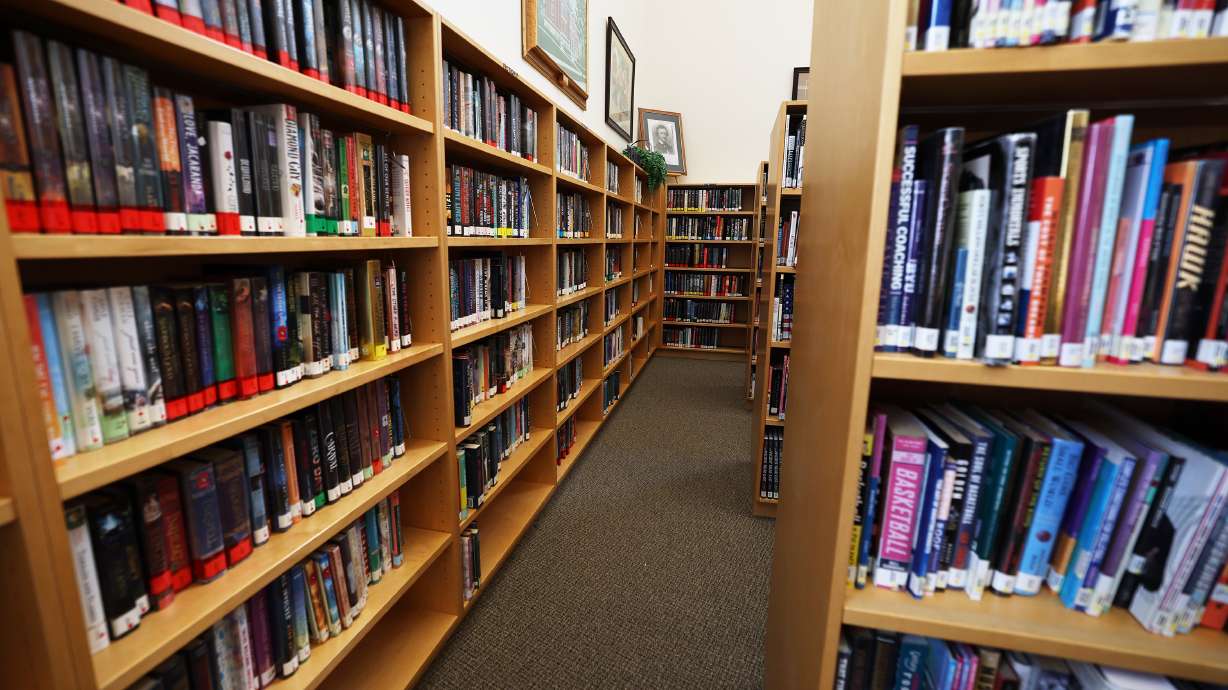SALT LAKE CITY — The Utah Legislature is continuing to focus on the contents of school libraries across the state, this time honing in on the process of how books are selected to build out a library.
A legislative audit released Tuesday reviewed a selection of 22 books found in secondary school libraries, looking for “statutorily questionable content.”
Those terms are defined in the “Pornographic and Harmful Materials and Performance” section of Utah Code to give the audit team a standard to deem what is and isn’t “sensitive.”
“We recognize there is subjectivity in what is considered questionable or objectionable, but we found many instances of sexual content or nudity that appear to violate Utah Code,” said the audit.
In the audit’s review of the 22 books, it found that 21 of the 22 (95%) contained sexual content as defined by Utah code, and 16 of the 22 (73%) books also contained nudity.
“We believe that if challenged, most of the books we reviewed would be found to be ‘objective sensitive materials,'” said the audit.
Passed in the 2024 legislative session, HB29 was meant to clarify HB374, the controversial law approved by lawmakers in 2022 that created guidelines for the removal of books with sexually explicit content from public school libraries.
The law requires books to be challenged by a member of the community to start the process of determining whether they are “sensitive materials.”
The material is then reviewed by a local committee that determines if the excerpts from the book meet the statutorily defined threshold to be considered pornographically sensitive material. If it is, the book is permanently removed from schools and deemed “sensitive.”
In addition to reviewing books for sexual conduct and nudity, the audit also reviewed books for language, which the audit described as “f-words and c-words.”
“In one book alone, we found that the f-word appeared on more than 300 pages, sometimes with more than one instance per page. Some books had no ‘f-words’ while others had more than 100.
Violence was less prevalent, with the highest instances of violence in one book being 18 counts,” said the audit.
A separate audit released in June said that librarians cannot thoroughly vet every book in the library. Additionally, when new libraries open, book packages are often ordered to quickly build collections, leading to potentially sensitive materials being in school libraries.
The 22 books reviewed in the audit were pulled from 42 secondary school categories across seven districts (Davis, Weber, Salt Lake City, Granite, Canyons, Alpine and Washington). The audit also said that the 22 books were selected from a list of 186 titles “provided by a concerned legislator.”
The list rated books on a scale of zero to five, with zero considered safe for everyone and five being most concerning, according to the unnamed legislator who compiled the list.
According to the audit, the list of 186 books was randomly reordered before the 22 titles were selected for review.
“We reviewed the publicly facing library and eBook catalogs in randomly selected secondary schools in seven school districts. If the books were not found in three to five high schools, we moved on to check three to five middle or junior high schools. If the books were still not found, we did not add them to our review list. If, within the secondary school search, the book was found to be in any one library, we added it to the list of books to review in depth. We selected 20 books that were found across 42 libraries,” said the audit, adding that the reviewers added two additional titles “based on legislative concern.”
Tuesday’s audit doubled down on the recommendations given in the June 2025 audit.
“We found that within the LEAs (local education agencies), the challenge processes to determine if a book already in schools is sensitive are working as laid out in Utah Code when a book is contested. The problem is that this relies on individuals finding out about a book and challenging it. As found in this report, this process is not removing all questionable books,” said the audit.
To that end, one of the recommendations to the Legislature was to consider the policy question of whether or not individual districts should be required to have a policy for the selection of library books.
Instead of librarians deciding which books to purchase, the audit suggested districts provide “support to librarians in making book selections.”
This, the audit said, would give librarians “additional professional protection when or if books are challenged.”
A different recommendation from the first audit said that districts should create and implement policies for selecting books and maintaining library collections.
“This review demonstrates that questionable materials continue to appear in school libraries under existing selection practices. LEAs’ challenge processes provide a necessary safeguard, but they do not prevent questionable content from entering collections. By adopting stronger, proactive selection policies, LEAs can provide educators with clearer standards, offer professional protection when challenges arise, and safeguard students in alignment with legislative intent and Utah Code,” said the audit.
The Key Takeaways for this article were generated with the assistance of large language models and reviewed by our editorial team. The article, itself, is solely human-written.
